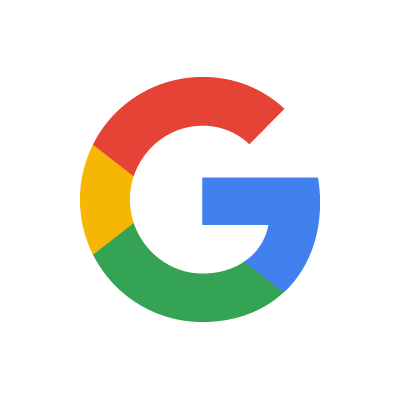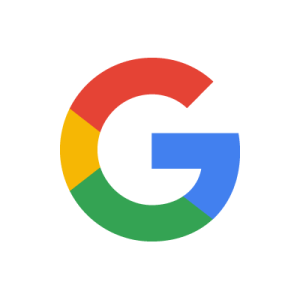how much is google advertising cost


how much is google advertising cost Are you a business owner looking to reach new heights through online advertising? If so, you’ve probably considered Google as a platform to showcase your products or services. But before diving in headfirst, it’s crucial to understand how much Google advertising will cost you. Let’s explore the factors that influence Google advertising costs and help you make an informed decision.
First and foremost, it’s important to realize that Google advertising costs can vary significantly depending on various factors. One of the key determinants is the type of ad campaign you choose. Google offers several advertising options, including search ads, display ads, shopping ads, and video ads. Each of these comes with its own price range, which you should consider when planning your marketing budget.
Another critical factor that affects Google advertising costs is keyword competitiveness. The more competitive a keyword is, the higher the cost per click (CPC) will be. For instance, if you’re targeting popular keywords with high search volumes, such as “insurance” or “real estate,” the bidding competition among advertisers will be fierce, driving up the CPC.
Budget allocation also plays a significant role in determining your Google advertising costs. Google provides different budgeting options, including daily budgets and campaign budgets. With daily budgets, you can set a specific amount to spend each day, while campaign budgets allow you to allocate a fixed budget for the entire campaign duration. Understanding your budgetary constraints and objectives will help you optimize your spending effectively.
Furthermore, your target audience and geographic location can impact the cost of advertising on Google. Advertisers often find that certain demographics and regions are more expensive to target due to higher competition or market demand. Therefore, it’s vital to conduct thorough research on your target audience and adjust your advertising strategy accordingly.
Remember, Google advertising costs are not solely about financial investment but also about understanding your target audience and crafting an effective campaign. By analyzing your competitors, setting clear goals, and continuously monitoring and optimizing your ads, you can maximize the return on your advertising investment.
understanding how much Google advertising costs is essential for any business owner aiming to make their mark in the digital realm. The pricing varies based on factors such as the type of ad campaign, keyword competitiveness, budget allocation, and target audience. So, take the time to research, plan strategically, and unleash the power of Google advertising to drive your business towards success!
Unveiling the Secrets: What Influences the Cost of Google Advertising?
Have you ever wondered what goes into determining the cost of Google advertising? It’s like a well-kept secret, but today, we’re going to uncover it for you. Understanding the factors that influence the cost of Google advertising can help you make informed decisions and maximize your marketing budget. So, let’s dive in!
One key factor that influences the cost of Google advertising is keyword competition. When multiple advertisers are targeting the same keywords, it drives up the bidding competition, ultimately increasing the cost per click. Highly competitive keywords, such as “insurance” or “mortgage,” tend to have higher costs due to the fierce competition among advertisers.
Another crucial factor is the quality score of your ads. Google assigns a quality score based on factors like ad relevance, landing page experience, and expected click-through rate. Advertisers with high-quality scores are rewarded with lower costs per click, while those with low scores may end up paying more. So, it’s essential to create relevant and engaging ads that align with user intent.
The timing of your ad campaigns also plays a role in cost fluctuations. During peak seasons or popular events, such as holidays or big sales promotions, the demand for advertising space increases. As a result, the cost of Google advertising tends to rise during these periods. Planning your campaigns strategically and being aware of industry trends can help you optimize your ad spend.
Geographical targeting is another aspect that affects the cost of Google advertising. Different locations have varying levels of competition and customer demand. If you’re targeting a highly competitive market like New York City, the cost per click is likely to be higher than in less crowded areas. Adjusting your targeting settings based on location can help you manage costs effectively.
Lastly, the relevancy and quality of your landing page are vital factors that impact advertising costs. Google emphasizes providing users with a positive experience, so if your landing page is slow to load or lacks relevant content, it can negatively affect your quality score and increase your costs.
several factors influence the cost of Google advertising. Keyword competition, quality score, timing, geographical targeting, and landing page quality all contribute to the final price you pay for your ads. By understanding these factors and optimizing your campaigns accordingly, you can make the most of your Google advertising budget and achieve better results for your business.
The Price Game: Understanding the Variable Costs of Google Advertising
Are you looking to maximize your online presence and drive more traffic to your website? Google Advertising can be a game-changer for businesses, allowing you to reach your target audience effectively. However, before you jump into the world of Google Ads, it’s crucial to understand the variable costs associated with this advertising platform.
When it comes to Google Advertising, one of the key factors that determine your expenses is the bidding system. With Google Ads, you have the flexibility to set your own budget and bid on keywords relevant to your business. The competition for popular keywords can drive up the bidding price, making it essential to find a balance between cost and visibility.
Another aspect that influences the cost of Google Ads is the quality score. Google’s algorithm assesses the relevance and quality of your ads and landing pages, assigning them a score. The higher your quality score, the lower your cost per click (CPC) will be. Crafting compelling ad copy and optimizing your landing page can significantly impact your quality score and reduce your advertising costs.
Additionally, the industry you’re in and the competitiveness of your target keywords play a role in determining the variable costs. Highly competitive industries tend to have higher CPCs due to increased demand. It’s essential to research and analyze your industry’s landscape to gauge the potential costs involved in running Google Ads campaigns.
Furthermore, the timing and targeting of your ads can affect the cost. Advertisers can choose to display their ads throughout the day or at specific times when their target audience is most active. Targeting options, such as geographic location, language, and device, also come into play. By refining your targeting settings, you can optimize your ad spend and ensure your ads are reaching the right people.
understanding the variable costs of Google Advertising is crucial for any business aiming to leverage this platform effectively. Bidding strategies, quality scores, industry competitiveness, timing, and targeting options all contribute to the overall expenses. By carefully planning and optimizing your campaigns, you can strike a balance between cost and return on investment, ultimately driving growth and success for your business in the digital realm.
Breaking Down the Budget: Exploring the Factors Behind Google Advertising Costs
Are you curious about the factors that influence the cost of advertising on Google? Let’s break it down and explore the intricacies of Google advertising costs. Understanding these factors can help businesses make informed decisions about their advertising budgets.
Firstly, one crucial aspect to consider is the bidding system employed by Google Ads. This system allows advertisers to bid on specific keywords or phrases relevant to their business. The competition for these keywords plays a significant role in determining the cost. Popular and highly sought-after keywords tend to have higher costs per click (CPC) due to increased demand.
Another factor impacting Google advertising costs is the quality score assigned to each ad. Google evaluates the relevance and quality of ads based on various factors like click-through rates (CTR), landing page experience, and ad relevance. Ads with higher quality scores generally receive better ad placements at lower costs.
Furthermore, the target audience and geographic location can affect advertising costs. Advertisers can choose to target specific demographics, locations, or interests. The more specific the targeting, the higher the cost may be as it narrows down the potential reach. Additionally, the competitiveness of the chosen target audience or location can also impact costs.
The timing and duration of your advertisements are also important considerations. Certain periods, such as holiday seasons or special events, often witness increased competition and higher advertising costs. Meanwhile, running ads during non-peak times might provide cost-saving opportunities due to decreased demand.
Lastly, the relevancy and quality of your landing page can affect the cost of advertising. Google wants to ensure a positive user experience, so having a well-designed and informative landing page is critical. If your landing page is deemed relevant and valuable to users, it can positively impact your quality score and potentially reduce advertising costs.
several factors contribute to the cost of advertising on Google. Keyword competitiveness, quality scores, target audience, timing, and landing page quality all play a significant role. By understanding these factors, businesses can make strategic decisions to optimize their advertising budgets and maximize the return on their investment.
From Startups to Corporations: How Much Should You Budget for Google Advertising?
Are you a business owner looking to advertise on Google? Wondering how much you should budget for this powerful advertising platform? Whether you’re a startup or an established corporation, determining the right budget for Google advertising is crucial for maximizing your return on investment (ROI). In this article, we will delve into the factors that influence your budget and provide some valuable insights.
One of the key elements to consider when allocating your budget is your advertising goals. Are you aiming for brand awareness or immediate conversions? Different goals require different approaches. If you’re focused on building brand recognition, you might want to invest more in display ads that reach a wider audience. However, if your primary objective is driving sales, allocating a larger portion towards search ads could be more beneficial as they target users actively searching for your products or services.
Another vital aspect to keep in mind is your industry competitiveness. Certain industries have high competition, making it more challenging to rank well and acquire clicks. In such cases, you might need a larger budget to compete effectively with other advertisers. Industries like finance, e-commerce, and healthcare typically fall into this category.
The keywords you choose to bid on also impact your budget. Popular keywords tend to have higher costs per click (CPC) since they attract more advertisers vying for the same audience. It’s important to strike a balance between popular keywords that drive traffic and less competitive long-tail keywords that can offer cost efficiencies.
Your target audience size matters too. Depending on the size of your target market, you may need to adjust your budget accordingly. A smaller niche audience requires less spending compared to a broad global audience.
Additionally, your budget should be flexible and adaptable. Testing and optimizing your campaigns is essential for achieving better results over time. By monitoring performance metrics like click-through rates (CTR) and conversion rates, you can make data-driven decisions and fine-tune your budget allocation.
determining the right budget for Google advertising depends on various factors, including your advertising goals, industry competitiveness, chosen keywords, target audience size, and campaign optimization. Careful planning and continuous monitoring are key to finding the sweet spot that maximizes your advertising ROI. So, take the time to evaluate your unique business needs and make informed decisions to propel your online advertising success.
